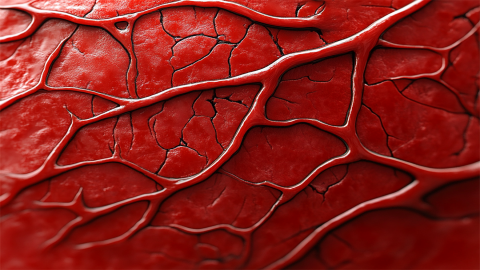How is vascular occlusion treated?
Under normal circumstances, vascular occlusion may be caused by factors such as a greasy diet, lack of exercise, hypertension, hyperlipidemia, and atherosclerosis. It is recommended to seek timely medical consultation, identify the underlying cause, and undergo general treatment, medication therapy, or interventional procedures under a physician's guidance. Detailed explanations are as follows:

1. Greasy diet: Long-term consumption of high-fat, high-salt, and high-sugar foods can increase blood lipids, making vascular occlusion more likely. Adjust your diet by reducing intake of these foods and consuming more dietary fiber and unsaturated fatty acid-rich foods such as celery, oats, and fish to reduce vascular strain.
2. Lack of exercise: Prolonged physical inactivity can slow blood flow, allowing lipids to deposit on the vessel walls and cause blockages. Engage in at least 150 minutes of moderate-intensity exercise weekly, such as brisk walking, swimming, or cycling, to improve circulation and reduce lipid deposition.
3. Hypertension: Persistently elevated blood pressure can damage the vascular endothelium, promoting lipid deposition and blockage formation. Symptoms may include dizziness and headaches. Patients should follow medical advice to use antihypertensive medications such as nifedipine sustained-release tablets, valsartan capsules, or benazepril hydrochloride tablets. Additionally, limit sodium intake and maintain emotional stability.
4. Hyperlipidemia: Elevated cholesterol and triglyceride levels in the blood can lead to plaque formation in vessels, causing occlusion. Patients should follow medical advice to use lipid-regulating medications such as atorvastatin calcium tablets, rosuvastatin calcium tablets, or fenofibrate capsules, and regularly monitor lipid levels.
5. Atherosclerosis: Accumulation of lipids on the vessel walls leads to plaque formation, narrowing or even blocking the vessel lumen, commonly affecting the coronary and carotid arteries. In severe cases, percutaneous transluminal angioplasty may be required, involving balloon dilation of the vessel and stent implantation to restore normal blood flow.
Routinely maintain a regular sleep schedule, avoid staying up late, quit smoking, limit alcohol consumption, and maintain a healthy weight. Regularly undergo vascular examinations and implement comprehensive management strategies to maintain vascular health and reduce the risk of occlusion.






